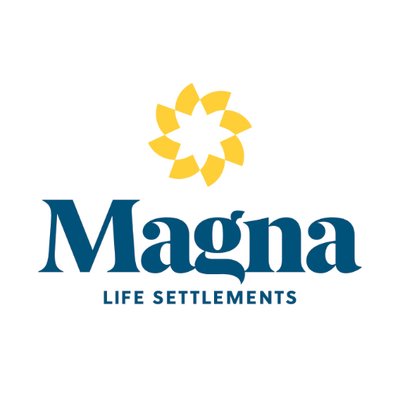Sell Life Insurance Policy for Cash Payout
It is within your rights to sell your life insurance policy today; online from the comfort of your home with a Life Settlement. If you qualify for a Life Settlement you can see how much your life insurance policy is worth in seconds.
See How Much Your Policy May Be Worth
Life Settlement company’s have eligibility requirements to screen a policy holder who wants to sell their life insurance policy.
The standard procedures followed by most Life Settlement companies include, Age, Policy Amount, Type of Policy and Health Status – as the main requirements for eligibility on a Life Settlement.
The type of insurance policy can vary, but many life settlement brokers prefer universal life policy, whole life policy, and convertible term life policies.
These eligibility requirements are not set in stone, for example; companies that buy life insurance policies will overlook standard procedure to assist policy holders who have a terminal illness and are seeking a payout for their life insurance policy to help with bills and expenses.

Magna Life Settlements Overview
Cash Payout for a Life Insurance Policy
The payout amount for a life insurance sale depends on the factors listed in the eligibility requirements of the life settlement or viatical company.
On average, proceeds range from 20% to 25% of the value of your policy. Your payout amount is open for negotiations, and we have seen the settlement agreement go as high as 50% of the policy size.
Selling a Life Insurance Policy
Non-payment of life insurance premiums
Insurance companies may decline to honor a life insurance claim if you stopped or have been inconsistent with paying insurance premiums.
Therefore, in the event financial constraints make it impossible to honor the regular premiums, remember that you have the option to sell the policy in a life settlement or viatical, rather than allowing the insurance company keep the monetary value of the policy.
Medical Expenses and Emergencies
When pressed by large medical expenses that need to be paid up front, you can always count on the proceeds of the settlement.
Though saddening, health complications may in actual sense raise the settlement value of the policy where the investors project a lower life expectancy.
Pros and Cons to Selling your Life Insurance Policy
The biggest advantage to selling your policy is that you will receive a lump sum liquid payout up front.
On average, if you have a $100,000 life insurance policy, you will be receiving about $25,000. The next big advantage is that you won’t have to make any more premium payments on your insurance policy.
The process to sell your life insurance policy is very streamlined, as Life Settlement Brokers try to make the process as fast as possible.
You need to fill out a few forms and answer questions that the life settlement company has, give them your medical records and wait for a decision.
When you get an offer you decide to accept, you will contact your life insurance carrier to change the beneficiary to the settlement company.
In many cases you can do this online.
The biggest disadvantage is that you will forfeit your insurance death benefit payout.
You also must factor in the taxes for a Life Settlement. In most cases, your settlement will be taxed as a combination of ordinary income and capital gains.
The capital gains portion of the settlement equals the difference between what you get from selling the policy versus the cash surrender value if you were to cash your policy in.
The specific tax rules governing a life settlement or a viatical settlement are quite complex, so be sure to consult a qualified tax expert when you sell your policy.
How to Sell your Policy Online
Because a life settlement can provide a significant cash payout to help pay for retirement expenses, no one should miss that opportunity simply because they don’t understand the life settlement process. As the word gets out about the potential upside of life settlements, seniors who are likely to benefit from these transactions need guidance about how it works and how to start the process. Here are the basic steps of a life settlement:
1) Determine your eligibility
Using Magna’s calculator, first determine whether your medical status and the specifics of your policy make you a good fit for a settlement.
2) Submit an inforce illustration
With the help of a Magna case administrator, you will request an illustration from your life insurance carrier that spells out what the minimum premium costs would be if you kept the policy until it matures – typically at age 100 – and if the net policy account value at maturity was $1,000. This allows us at Magna to determine how much your policy may be worth.
3) Submit additional healthcare data
At this point, you will fill out a HIPAA form protecting your privacy and submit your health data. This also helps us to determine how much your policy may be worth.
4) Review and Informal offer
Then, your Magna representative will calculate the value of your policy and decide whether or not to make you an informal offer, pending the next steps of information gathering.
5) Magna obtains medical records and life expectancy report
These reports verify your policy value so that Magna can calculate an offer that pays out the maximum amount for your policy.
6) If your policy qualifies, Magna Life Settlements extends a formal offer
If you accept the offer, you will receive cash in exchange for the sale of your policy after the sale is complete. This closing process takes some time. Similar to buying a house, a life settlement involves signing contracts.
7) Magna Life takes over the policy
After the settlement transaction closes, Magna Life Settlements is responsible for paying all future premiums and receives the death benefit once the policy matures.
Contact Magna Life Settlements to get a free estimate on the cash payout from the sale of your life insurance policy today.
*Comments provided in this post are for informational purposes only and should not be construed as financial, legal or tax advice, recommendations or solicitations. Please consult your financial, legal or tax professional with questions related to the information presented, or for advice as to whether a life settlement is right for you.








